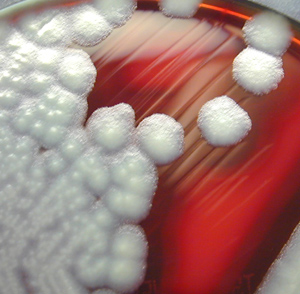Stomach Bacteria and Weight Gain
/ New research suggests that biggie-size portions and our sedentary lifestyle aren’t the only reason why some of us are piling on the pounds. Scientists at Emory University reveal that a universe of bacteria — the so-called gut microbiota — that live in human stomachs can pile on the pounds in mice when they lack a protein known as toll-like receptor 5 (TLR5).
New research suggests that biggie-size portions and our sedentary lifestyle aren’t the only reason why some of us are piling on the pounds. Scientists at Emory University reveal that a universe of bacteria — the so-called gut microbiota — that live in human stomachs can pile on the pounds in mice when they lack a protein known as toll-like receptor 5 (TLR5).
Without TLR5, gut bacteria can overflourish, triggering an inflammatory state as the body fights back.
In a way, inflammatory factors and insulin compete for the attention of the same intestinal cells; if the cells are busy responding to inflammatory factors, then they are less likely to take up glucose and process it effectively. Such a desensitization to insulin and glucose then leads to the symptoms of metabolic syndrome, such as weight gain, high cholesterol and triglyceride levels and elevated blood pressure — which were all present in the TLR5-deficient mice.
The state of inflammation causes insulin resistance, which then makes the mice eat more.
Researchers have long been concerned that improved sanitation and cleaner water, which has evolved into a near obsession with antibiotics even in soap and bubblebath, would eventually disrupt the human body’s reaction to disease. Scientists believe that a link may exist between antibacterial products and this new imbalance in the human digestive track.
Today’s post via TIME magazine, but visual comes from an also interesting 2006 study from Paris on stomach bacteria.





























